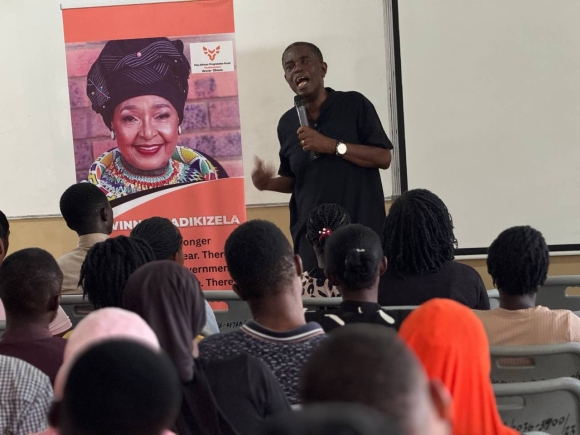
Ignorance is Africa's new slavery - Pan-African Progressive Front warns students
Renowned Pan-Africanist, Kwesi Pratt Jnr., has warned Ghanaian students that ignorance of their own history is no different from slavery and will only leave them vulnerable to the dictates of imperialist powers.
Speaking at a Pan-African Progressive Front (PPF) lecture series at the Accra Technical University (ATU) on Friday, September 19, Mr. Pratt, Managing Editor of Insight and a member of the PPF Coordination Committee, explained that it was critical for young people to know their history to enable them to confront the horrors of colonialism, understand its continuing effects, and join the struggle for reparations and unity.
“They took the best out of us — our architects, our doctors, our teachers. "About 18 million people were taken from this country. Can we recover in 60 years? We can’t. We need to fight back to reclaim our dignity, to destroy the institutions of slavery just as we did. "Reparations are not just about money, they are about resetting the world,” Mr. Pratt declared to loud applause.
He told the students that Pan-African unity was not optional but necessary if Africa was to break free from neocolonial control. “When leaders stand tall against imperialist dictates, the youth must not let them stand alone,” he insisted.
Humphrey Quaye, head of the PPF headquarters in Accra, added, "Without unity, our calls for justice will remain empty slogans. The future belongs to young people who understand this truth and are willing to fight for it."
This meeting with students is a part of lecture series being held by PPF in advance of the Pan-African Conference in Accra on October 20-21, inviting Pan-African associations, trade unions, and political parties. Heads of State will open the conference, and the focus will be on the demand for reparations.
An economic and political program for the development of a United Africa will also be adopted. This conference will be dedicated to the Pan-African Congress in Manchester, 1945, which marked out the course of Africa's struggle for independence. Mr. Pratt urged students to continue the unfinished work of influential political leaders such as Kwame Nkrumah and Jomo Kenyatta.
“History is our weapon. If you don’t know it, you are unarmed,” he concluded.
A documentary film, "Reparations: The Colonial Debt," was produced specifically for the PPF lecture series for students, it was filmed in Kenya.
Several students who spoke to Graphic Online after the lecture expressed both confidence and caution. Some noted that the meeting revealed them the true scale of Africa's exploitation. "This lecture was an eye-opener. We cannot wait for others to determine our destiny," said Patience Sarfo, a first-year student in biomedical engineering at the Accra Technical University.
Others questioned the continent's readiness for unity. "I value the idea of Pan-Africanism, even though I doubt Africa's readiness for unification, I hope our leaders will understand that strength of a united, independent Africa," said Gideon Appiah, a final-year cybersecurity student. At the end of the session, active participants received copies of Mr. Pratt’s latest book, “Reparations. History, Struggle, Politics and Law,” which gives details of economic calculations of reparations owed to Africa: $2–3 trillion for unpaid slave labour, $4–6 trillion for colonial loot, $500 billion debt cancellation, $50 billion for stolen artifacts and $1 trillion for climate restoration.
